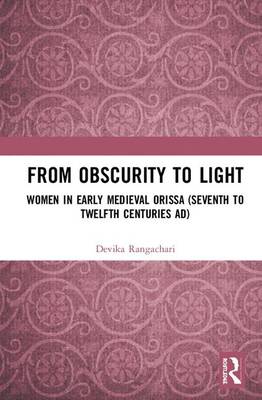
- Retrait gratuit dans votre magasin Club
- 7.000.000 titres dans notre catalogue
- Payer en toute sécurité
- Toujours un magasin près de chez vous
- Retrait gratuit dans votre magasin Club
- 7.000.0000 titres dans notre catalogue
- Payer en toute sécurité
- Toujours un magasin près de chez vous
Description
This book attempts to reintegrate women into the socio-political milieu of early medieval Orissa. Its sources are inscriptions, mostly Sanskrit, that date from the seventh century to the end of the reign of the Imperial Ganga ruler, Anantavarman Codagangadeva (CE 1078-1147). The evidence indicates that royal and non-royal women had varying but undeniably important roles to play in the socio-political fabric of this prominent regional entity. The Bhauma-Kara dynasty (c. mid-eighth/ninth-late tenth century) that witnessed the rule of six women, four of them in succession, is a case in point. In addition, the palpable presence of several other royal and non-royal women is consistently documented in the epigraphic record. This is an aspect that has received very little attention in secondary works, thereby rendering this study a pioneering one.
The work follows on from Rangachari's earlier Invisible Women, Visible Histories: Gender, Polity and Society in North India (7th to 12th century ad), which had focused on important gendered aspects of early medieval north India through an analysis of literary and epigraphic sources of Kashmir, Kanauj, Bengal and Bihar. The invisibilization of women, whereby their presence is routinely ignored or trivialized, was, similarly, its underlying essence.
Please note: This title is co-published with Manohar Publishers, New Delhi. Taylor & Francis does not sell or distribute the Hardback in India, Pakistan, Nepal, Bhutan, Bangladesh and Sri Lanka
Spécifications
Parties prenantes
- Auteur(s) :
- Editeur:
Contenu
- Nombre de pages :
- 272
- Langue:
- Anglais
Caractéristiques
- EAN:
- 9780367501273
- Date de parution :
- 07-04-20
- Format:
- Livre relié
- Format numérique:
- Genaaid
- Dimensions :
- 140 mm x 218 mm
- Poids :
- 408 g

Les avis
Nous publions uniquement les avis qui respectent les conditions requises. Consultez nos conditions pour les avis.






